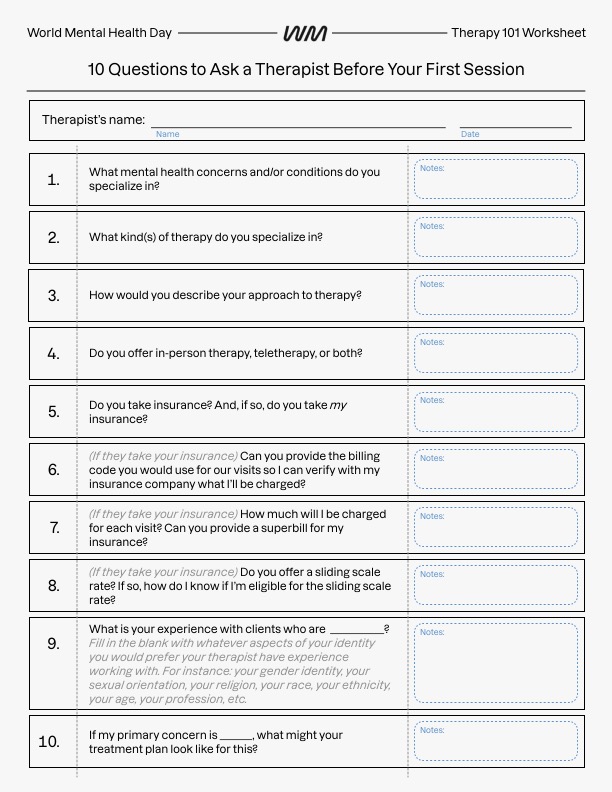10 Questions to Ask a Therapist Before Your First Session
Quick question: How much will this cost?
So, you did it—you found a therapist that seems like a good fit for you and they're taking new clients. That's great news!
*Pause for well-deserved celebration here!*
But before you book your first appointment, it's a good idea to get a little more information about their process, their expertise, and their fees (among other things!). Most therapists will let you to schedule a free phone consultation, either with a specific therapist or with someone who handles scheduling for the entire practice.
This phone call (which may only last 10-15 minutes) can help you get a sense of what to expect and give you time to clarify any insurance or billing questions you may have. If you don't see this advertised on their website, try emailing or calling them to ask about it. And if they don't offer it, they should be willing to answer some key questions via email before you make an appointment.
Not sure what to ask? Here are 10 crucial questions to ask a potential therapist before your first session. Heads up: You can also scroll down for a PDF version you can print or save to your phone.
- What mental health concerns and/or conditions do you specialize in?
- What kind(s) of therapy do you specialize in?
- How would you describe your approach to therapy?
- Do you offer in-person therapy, teletherapy, or both?
- Do you take insurance? And, if so, do you take my insurance?
- (If they take your insurance) Can you provide the billing code you would use for our visits so I can verify with my insurance company what I’ll be charged?
- (If they don’t take your insurance) How much will I be charged for each visit? Can you provide a superbill for my insurance?
- (If they don’t take your insurance) Do you offer a sliding scale rate? If so, how do I know if I’m eligible for the sliding scale rate?
- What is your experience with clients who are _________?
Fill in the blank with whatever aspects of your identity you would prefer your therapist have experience working with. For instance: your gender identity, your sexual orientation, your religion, your race, your ethnicity, your age, your profession, etc. - If my primary concern is ______, what might your treatment plan look like for this?

Wondermind does not provide medical advice, diagnosis, or treatment. Any information published on this website or by this brand is not intended as a replacement for medical advice. Always consult a qualified health or mental health professional with any questions or concerns about your mental health.




